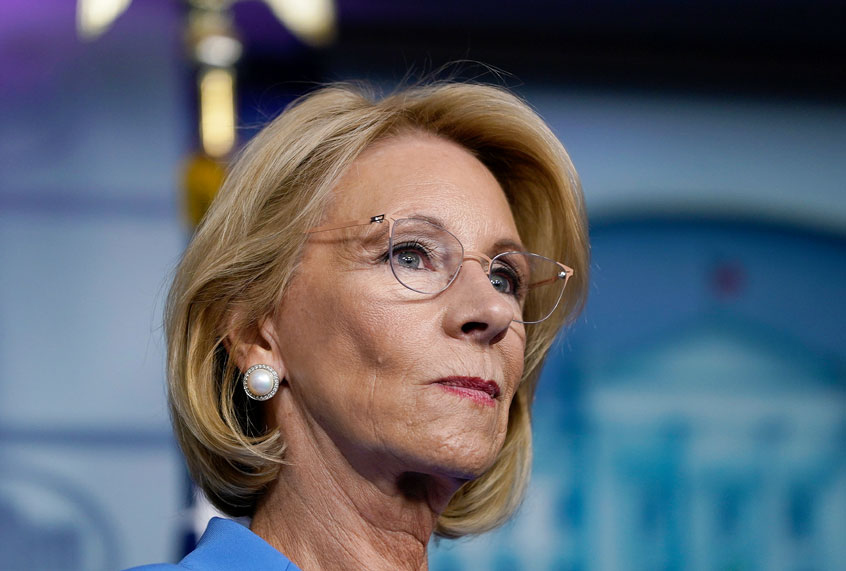The Department of Education quietly added a statement to its website last week implying that the agency would no longer legally enforce earlier guidelines which limited what students were eligible for emergency financial relief. No one seems to fully understand what the statement means.
“The department has stated on its guidance portal that ‘guidance documents lack the force and effect of law,'” the new redlined text reads.
However, schools and higher education experts say they cannot tell whether this applies to the department’s earlier guidance, which restricted schools from giving emergency funds to hundreds of thousands of undocumented students known as “Dreamers” who were granted special protected status under the Deferred Action for Childhood Arrivals policy. The National Education Association said the move exhibited an “astounding” level of “cruelty.”
That rule, the department says in the same website update, may or may not at some point be enforceable as law.
The update might be meaningless: It is unclear how many schools have already distributed their money to students, in which case they cannot wind back the clock in order to reallocate funds to Dreamers in need.
The department also suddenly deleted its controversial explanation of how it chose to divvy up $350 million in federal emergency funds intended for colleges in dire financial need amid the coronavirus pandemic.
However, DeVos has already allocated almost all of that money at this point, giving it to small institutions, including religious schools, seminaries, schools for Chinese medicine and a graduate school confused with a cult. The secretive process attracted negative national press.
The website now simply says, “Revisions are being made in the formula allocation table and methodology for this program.”
“I don’t know what to make of it. It’s another bit of confusion that’s been injected into the CARES Act funding,” Terry Hartle, vice president for American Council on Education government and public affairs, told Inside Higher Ed.
It appears the administration is also attempting to wriggle free not only of negative press but possible lawsuits. The California community college system and the Washington State attorney general each brought separate lawsuits when DeVos prevented schools from allocating relief money to undocumented students.
On Monday, government attorneys arguing those suits pointed to the new website statement: “Guidance documents lack the force and effect of law.”
“The guidance is non-binding,” the administration argued. “In the absence of a final determination issued with the force and effect of law, the department cannot, and will not, enforce the guidance against any institution of higher education.”
That guidance not only knocked out undocumented students but others who might be ineligible for other common reasons, such as poor grades. However, the administration further muddled the issue by arguing that other federal laws bar still undocumented Americans from receiving federal aid — which it claims extends to emergency coronavirus relief.
In other words, DeVos says schools should not give money to undocumented students, but if schools do, the government cannot stop them.
Unless, of course, guidance at some points becomes law, a which move DeVos is currently attempting with another controversial policy that would force public schools to share emergency funds with private schools.
Unlike with the subtle DACA guidance, however, DeVos has openly admitted that this move was purely ideological.


